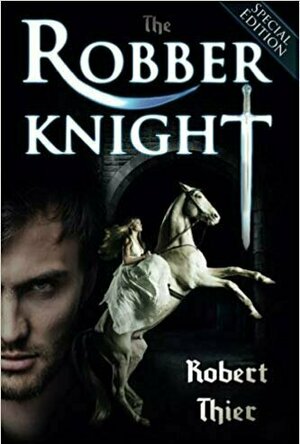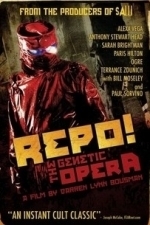
Home Design DIY Interior Room Layout Space Planning & Decorating Tool - Mark On Call for iPhone
Productivity and Lifestyle
App
"It's the next best thing to hiring a designer or having an assistant.” - Apartment Therapy "Save...

My Days X - Period & Ovulation ™
Lifestyle and Health & Fitness
App
"*** ABSOLUTELY LOVE IT ***, I came pregnant after 2 Month using it ! Thanks 2 My Days" The new...

MaxCurve - Photo editor for pro photography
Photo & Video
App
Best Apps of 2016, as Chosen by Apple. MaxCurve is a professional photo editor, which has the most...

My Days X - Period & Ovulation ™ (Pro)
Lifestyle and Health & Fitness
App
This is the AD-FREE Version from the popular Application "My Days - Period & Ovulation". --------...

Camera+ for iPad
Photo & Video and Social Networking
App
“The Clarity filter is iPhone photography’s secret sauce—it adds pro-camera crispness to...

BJJ Concepts
Sports and Health & Fitness
App
A STEP BY STEP FORMULA FOR HACKING BRAZILIAN JIU-JITSU In BJJ Core Concepts you’ll learn how to...

Italian Cooking HQ
Food & Drink and Lifestyle
App
Let's face it... Italian cooking is really “the mama” of all European cooking. The French stole...
Kara Skinner (332 KP) rated The Robber Knight in Books
Sep 10, 2019
Sir Reuben, the dreaded robber knight, has long been Ayla’s deadliest enemy. He has prayed on her and her people ever since her father fell ill, and she swore he would hang for his crimes. Now they are both trapped in her castle as the army of a far greater enemy approaches, and they have only one chance: stand together, or fall.
This book wasn’t bad, honestly. I’m a huge fan of historical fiction, and it had been awhile since I’ve read a medieval love story, so that was a nice change of pace.
The author is a historian, so there are a lot of little things in this book that you don’t see in a lot of other historical romance books. For instance,you can’t pull out arrows because there are often barbs attached to cause fatal wounds if pulled out. I did like learning about all of these facts. But sometimes Thier lets the historian in him gets the best of him, but more on that later.
Lady Ayla was a pretty interesting character. Headstrong and wise for her years, she is very noble and progressive. She has all of the makings for a great leader– with the exception of knowledge. I loved how kind and committed she was to her people and I love the fact that she has some spunk. I mean, if I’m getting robbed in the forest by this random stranger, then I hope I would swear him out too (of course, if I could beat him up and get away, then that’s even better, but Ayla doesn’t have much self-defense skills). But there were many times that she was annoying, like her insistence on being near battles, even before she started treating the sick. And how she tried to manage Sir Isenbard during battle. She had called on him for help because he was an experienced knight, and now she was questioning his commands and strategies in the heat of battle!
Mostly, though, I really did like Ayla. She defines the idea of nobility. With war inevitable, she’s willing to ride personally to the edges of her land to warn her subjects and she is always at the outskirts of battle to help care for the wounded. She invites everyone into the castle for their safety and rations herself as well as the others to conserve food. She’s even willing to corrupt herself to save her people.
Reuben is an excellent character as well, although it did take me awhile to like him. In the beginning he fell a little flat. It’s clear that he used to be a knight but something happened and now he robs people for his own greed. A near-death experience and being saved by Lady Ayla reawakens the humanity in him. And apparently also some depth.
In the beginning of the book he spends a lot of his time admiring his loot and laughing about his victims, who thought they had a right to steal from him. But that’s all he does. We have no real insight into his character or backstory until after he’s in Ayla’s care. Only then are there hints of a bad history where he had been arrested many times, been tortured, and had at one point been a member of respectable society. If it weren’t for the fact that I liked Ayla’a character and the plot so far, I probably would have stopped reading.
Thier is a writer who has really good potential in becoming a great romance writer, especially for historical fiction. The plots have some unique twists that are augmented by his knowledge of history and after Reuben’s character shaped up, he was an excellent love interest. But there is one huge problem with this story: the footnotes.
There are so many footnotes throughout most of the book that I feel like I’m reading a history textbook, which is not good when I usually read romance novels to take a break from homework. Not only are they distracting and unnecessary, but they are also rude and condescending. Sure, sometimes they were useful, like in explaining the references to the seven princes of hell. Another one was a pretty funny anecdote about how one of his readers had actually confirmed that lard burns and that burning arrows work because they had actually done it. There is also a lot of wit throughout the footnotes which is pretty amusing. But most of the time, they were annoying.
For instance, Robert Thier thought it was necessary to include a footnote about how witches were considered bad during medieval times. Seriously? Even if someone failed history, we know that witches are not considered fine, upstanding citizens. Or maybe he thinks all of us have been locked in our rooms with no books, internet or television for our entire lives and for the month of October we all miraculously fell into a coma so we couldn’t see the giant blow-up witch in the neighbor’s yard. And then we’d all wake up singing Christmas carols after the month long coma without a care in the world because this happens every year so we don’t know what a witch is. (I’m developing a conspiracy theory about how these strange comas was caused by witchcraft.)
Maybe Thier assumed that instead of us thinking Reuben was scared of witches when he wondered if Ayla was one, we just thought he was commenting on how much Ayla looked like Sandra Bullock.
And one of the footnotes was just plain offensive. Here is the line of text that the footnote is attached to: “Heel! Abominable villain! You dare defy me?” (page 74)
Now, here’s the footnote: “Sorry to disappoint the ladies, but this doesn’t refer to high heels. It is a medieval term for a very nasty person.”
Excuse me? Did you just assume that I thought it meant high heels and that would make me excited? What world do you live in?
Apparently he thinks “the ladies” are so dumb that we are incapable of taking context clues and we immediately think everything relates back to fashion. Maybe I didn’t know it meant “very nasty person”, but it’s pretty clear it’s a swear or insult of sometime, not a freaking Jimmy Choo. Does he just imagine us thinking high heel every time we hear the word?
“She broke his nose with the heel of her hand.” Oh. High heel!
“Heel, fido! I said heel!” Oh. High heel!
“It will take one or two days for your cut to heal.” Oh. High heel! (Because if he thinks we don’t understand the difference between uncomfortable footwear and an insult, then he probably thinks we can’t spell, either).
But hey, at least Robert Thier thinks women can memorize stuff, because the footnote links stop as the vocabulary is repeated instead of new terms being introduced.
Aside from the footnotes, I really do like this book, and I can’t wait to read the second part of it, which I’ll read soon. Thier still has a long way to go, but I think after he has more experience, he’ll write some great books.
Acanthea Grimscythe (300 KP) rated Repo! The Genetic Opera (2008) in Movies
May 12, 2018
Repo! takes place in 2056, where a planet-wide organ failure epidemic has led to drastic measures. In a time of need, a company by the name of GeneCo has come to the rescue. Offering payment plans to those that cannot afford their new organs, GeneCo saves the lives of those unfortunate souls. But what happens when they can’t meet their payments? Well, that’s what repo men are for, isn’t it?
So where does the parody come in? A similar system already exists in the way the American health care system is presently structured with its for-profit health insurance. Most insurance companies, like GeneCo, are not there for the benefit of their consumers, but for the filling of their pockets. As long as you can pay the premium (or the payment), your coverage remains intact and you’re able to get treatment and medication (or keep your organs in the world of Repo!). The moment you’re not able to do that, your coverage is often revoked (or your organs are repossessed). Of course, in the real world, this isn’t as brutal as it is in Repo! At least, not in most cases, but it can be just as scary. For myself, it’s often quite terrifying as I struggle to stay in remission from ulcerative pancolitis.
Moving on from the parody, there are other aspects of the movie that I feel are also accurate representations of today’s society – things that I feel Repo! was a bit ahead of its time on. The Largo family seems to represent the manner by which the wealthy feed upon the powerlessness of the poor. Also, am I the only one that, upon re-watching this film, can’t help but think of Trump when I’m looking at Rotti Largo? As a villain, Rotti is largely incompetent. He uses others to do what he can’t and often resorts to bullying to get what he wants, as can be seen in the blood contract with Blind Mag. Another example is how he manipulated Nathan and later Shiloh to break and control them, in hopes of controlling them. While it worked for the former of the two, Shiloh was not susceptible to his manipulation – yet another reference to something we’re seeing in today’s society in regards to Shiloh’s generation (that is present-day millennials) and the older generation, which is more mixed politically.
I think it’s also important that we take a moment to focus on Shiloh as a character. She is, perhaps, my least favorite character in this film. Then again, she was also in her rebellious teenage years and was, naturally, horrendously stereotyped. She loathed her father for keeping her bound to her room, even though she understood why and, even when she found out his sins and the lies he told her, she failed to turn against him – paying homage to the saying that “blood is thicker than water.” The end comics only state that she went into hiding, hinting that she was never to be heard from again – which is a shame. I’d like to think she’d become an activist, but… I guess that wasn’t her future.
One of my favorite things about this musical is the haunting and unearthly qualities that linger around Blind Mag and the Graverobber. This is a film I will watch again and again, even if others loathe it for being campy and over the top. In fact, I plan to show it to my Dad’s girlfriend’s kid.


